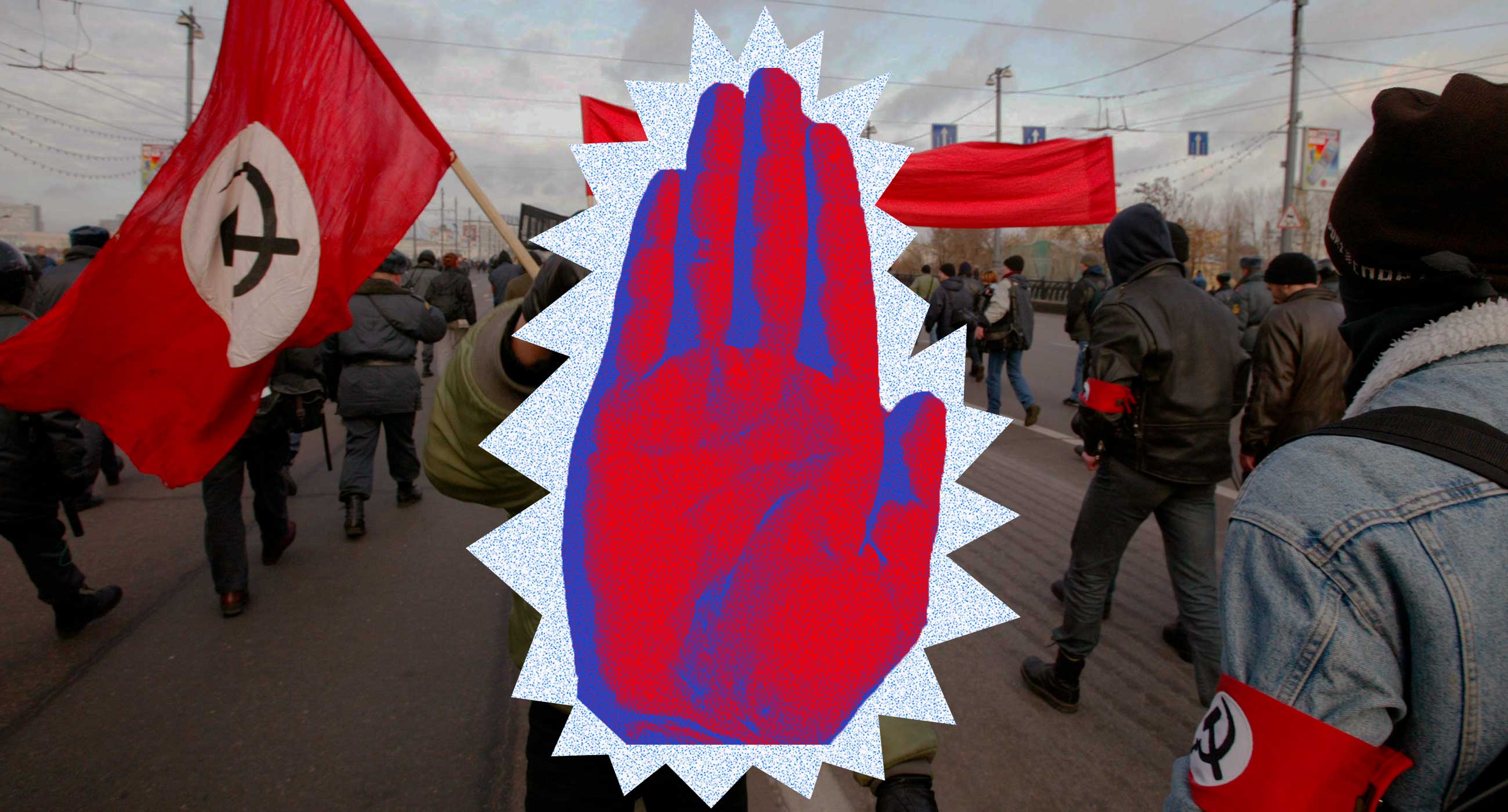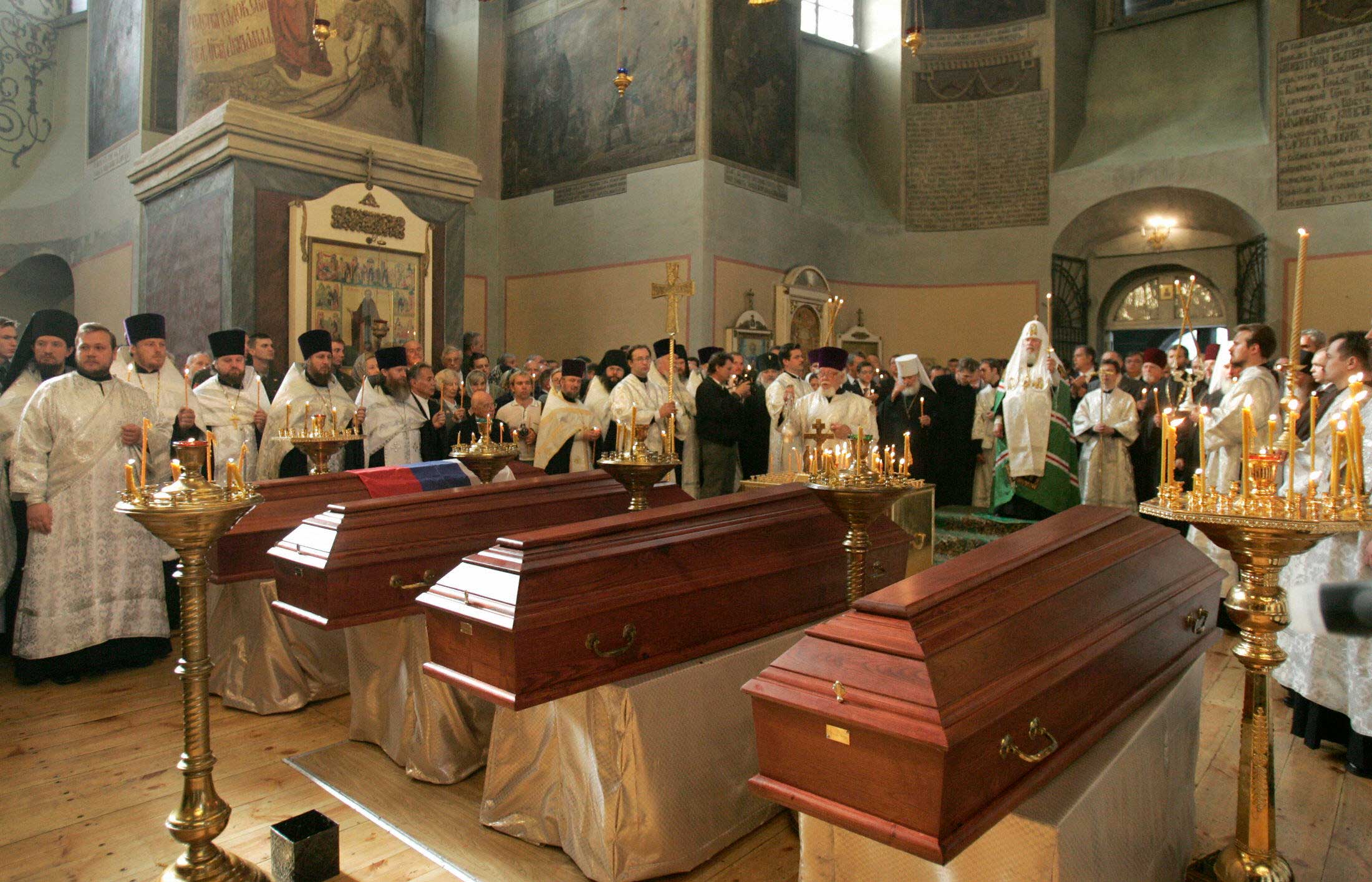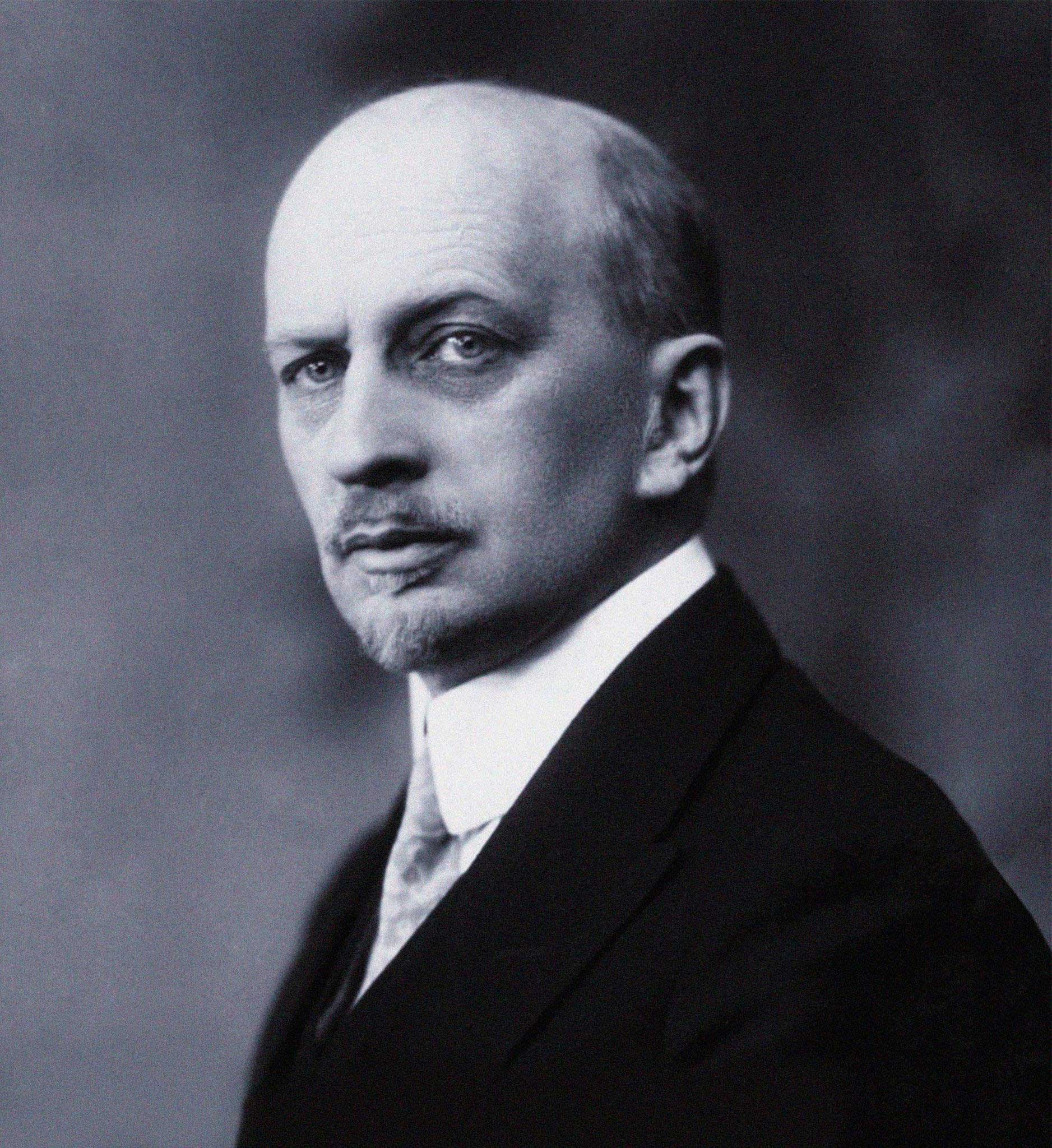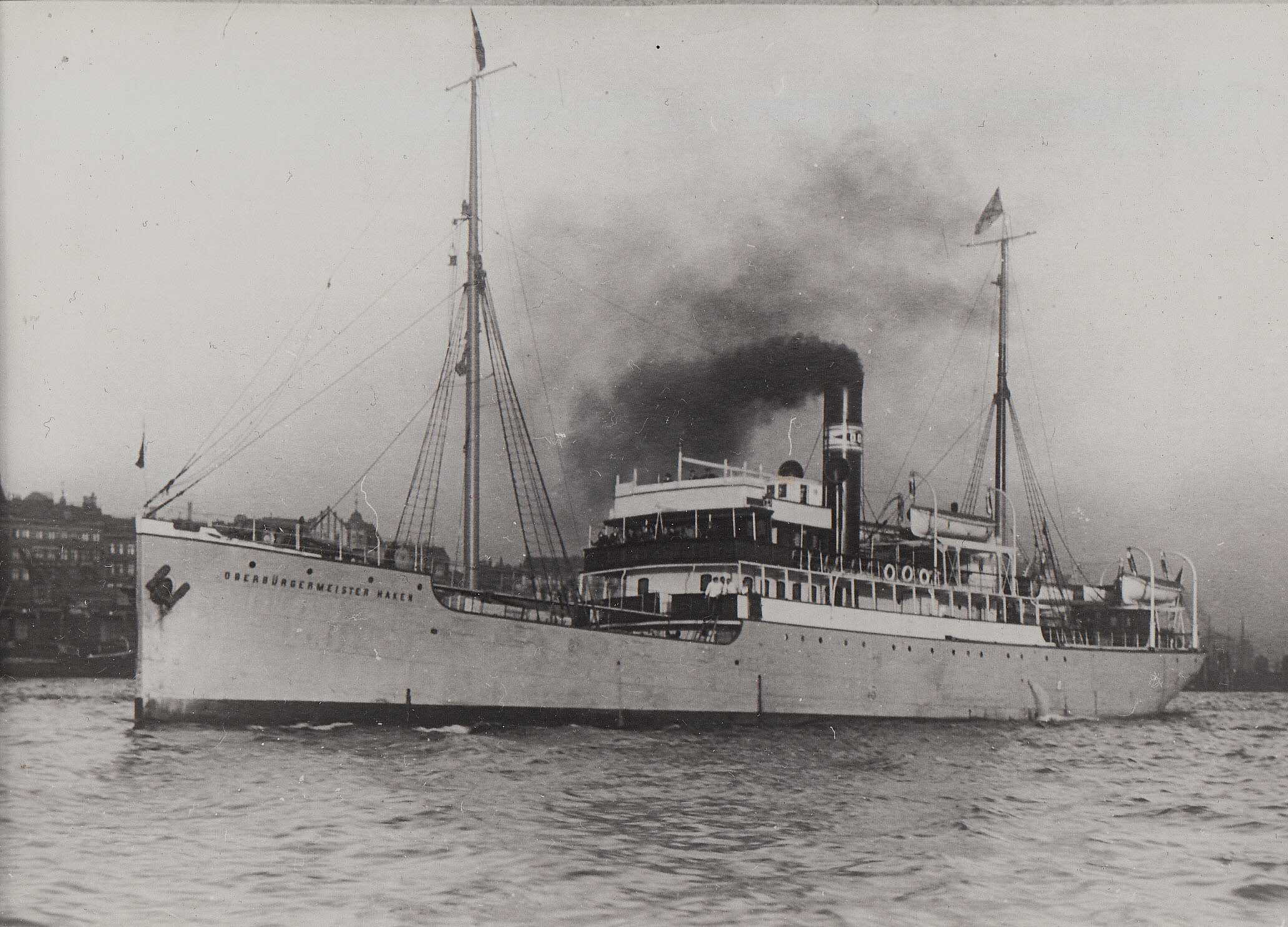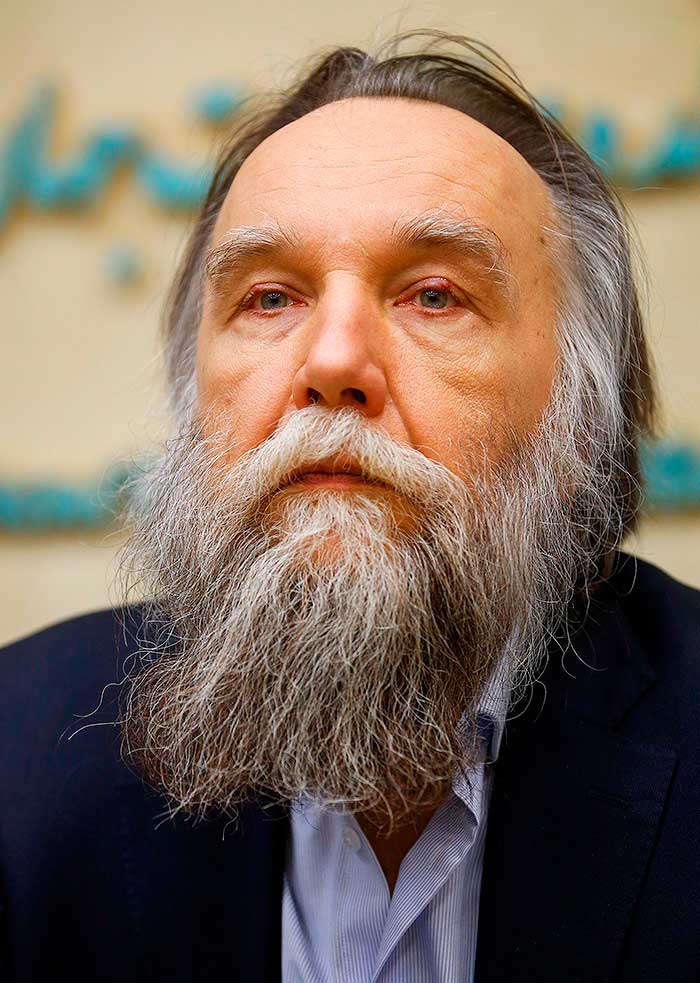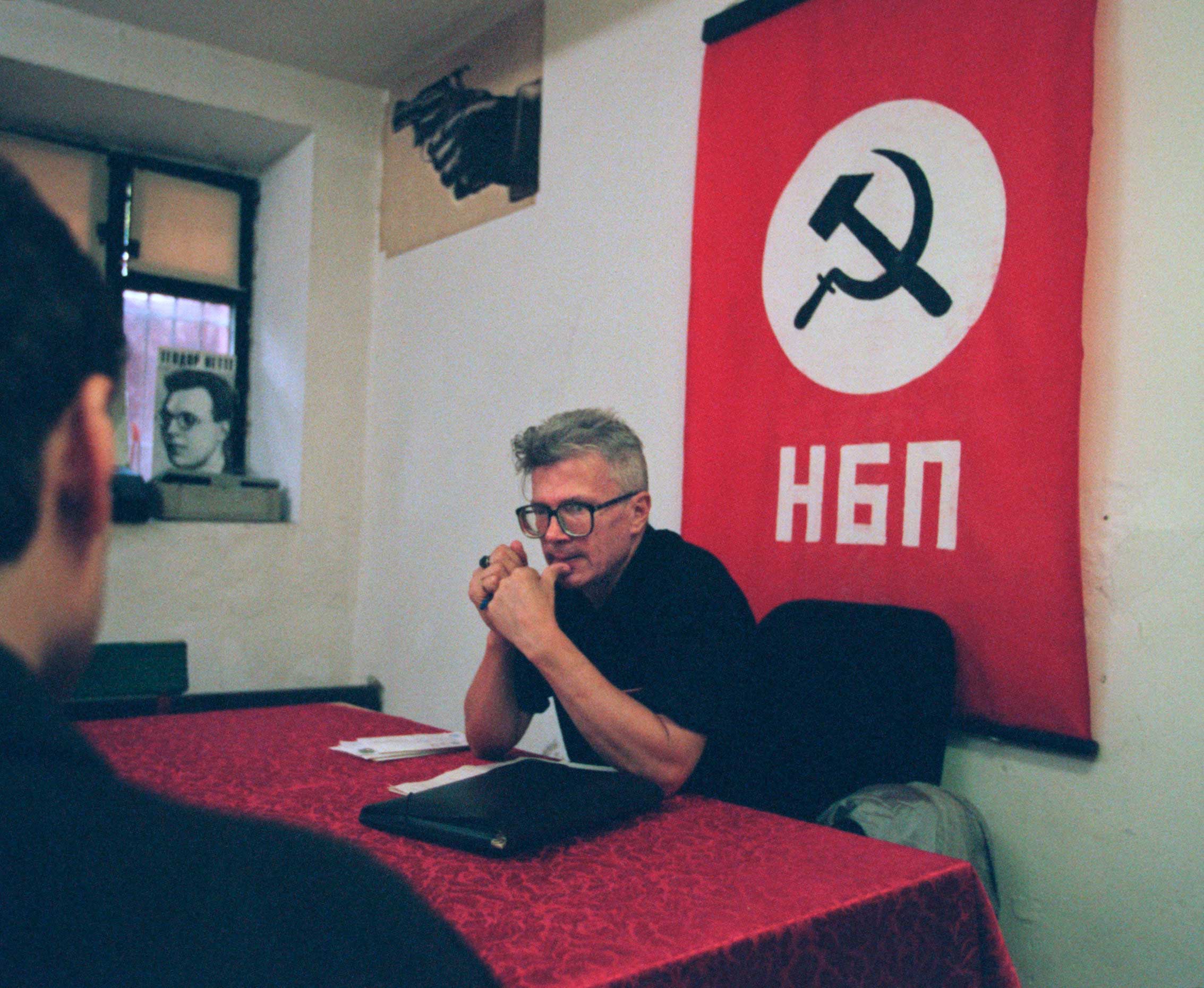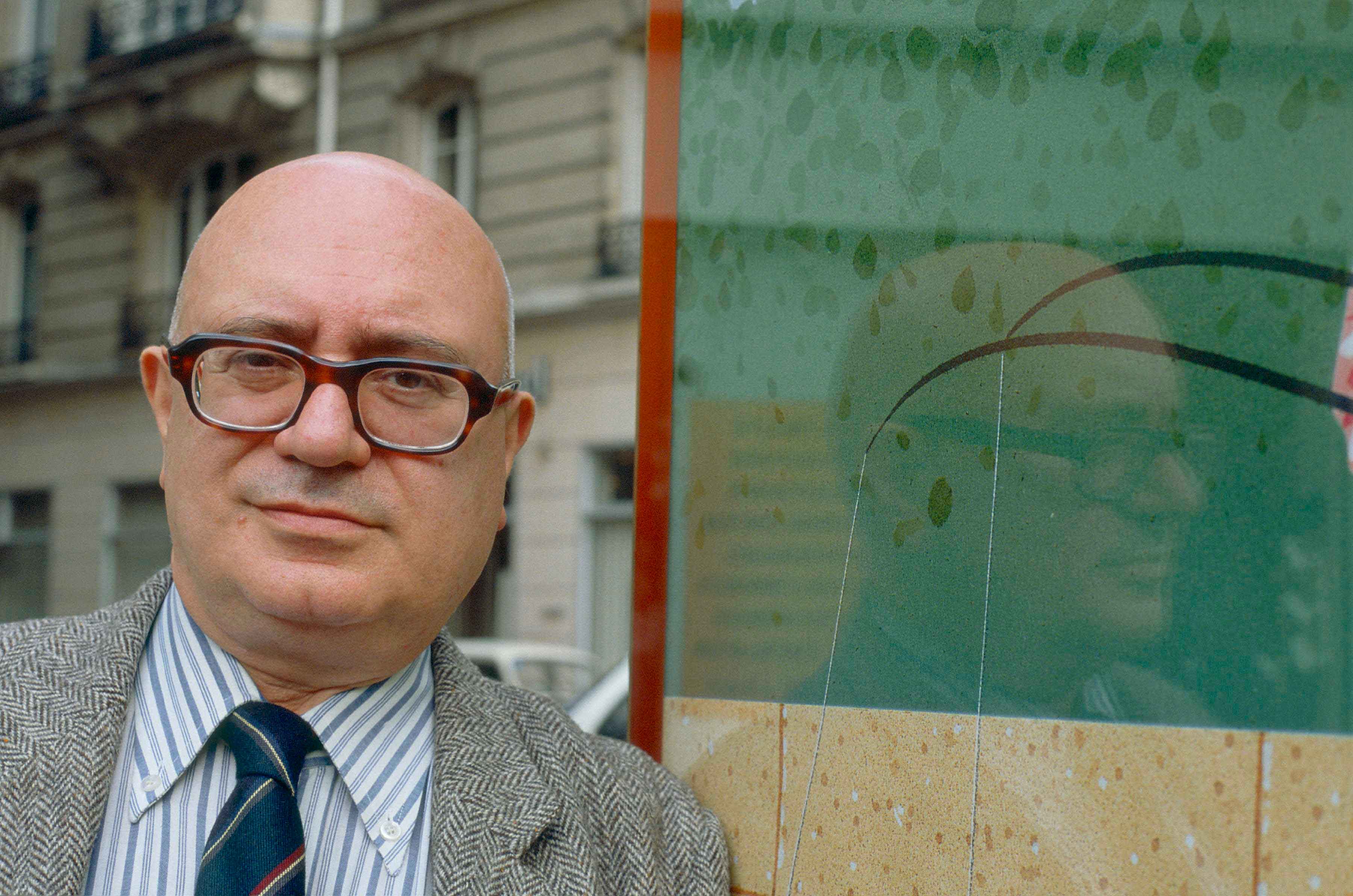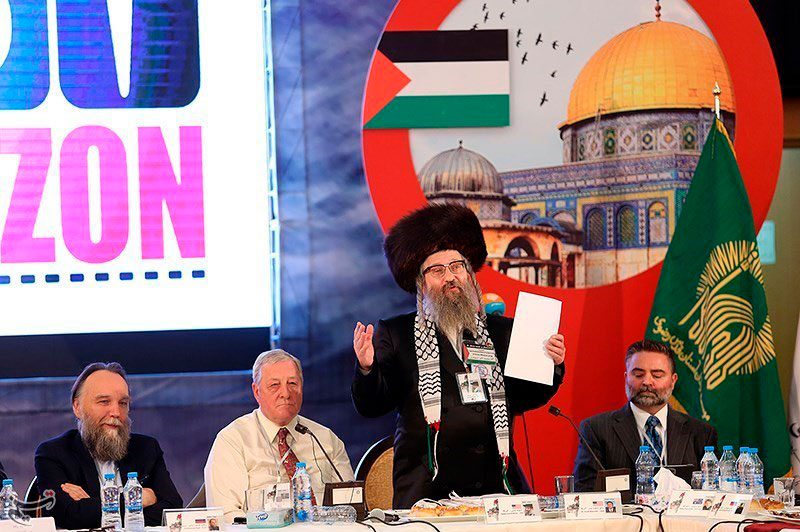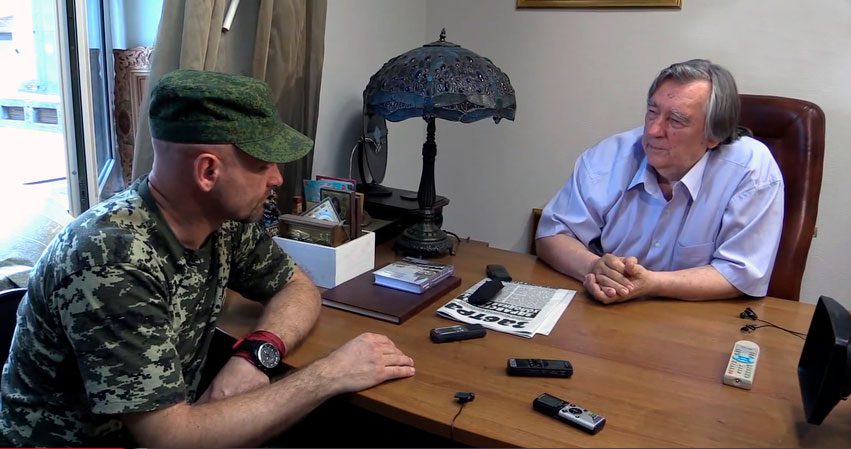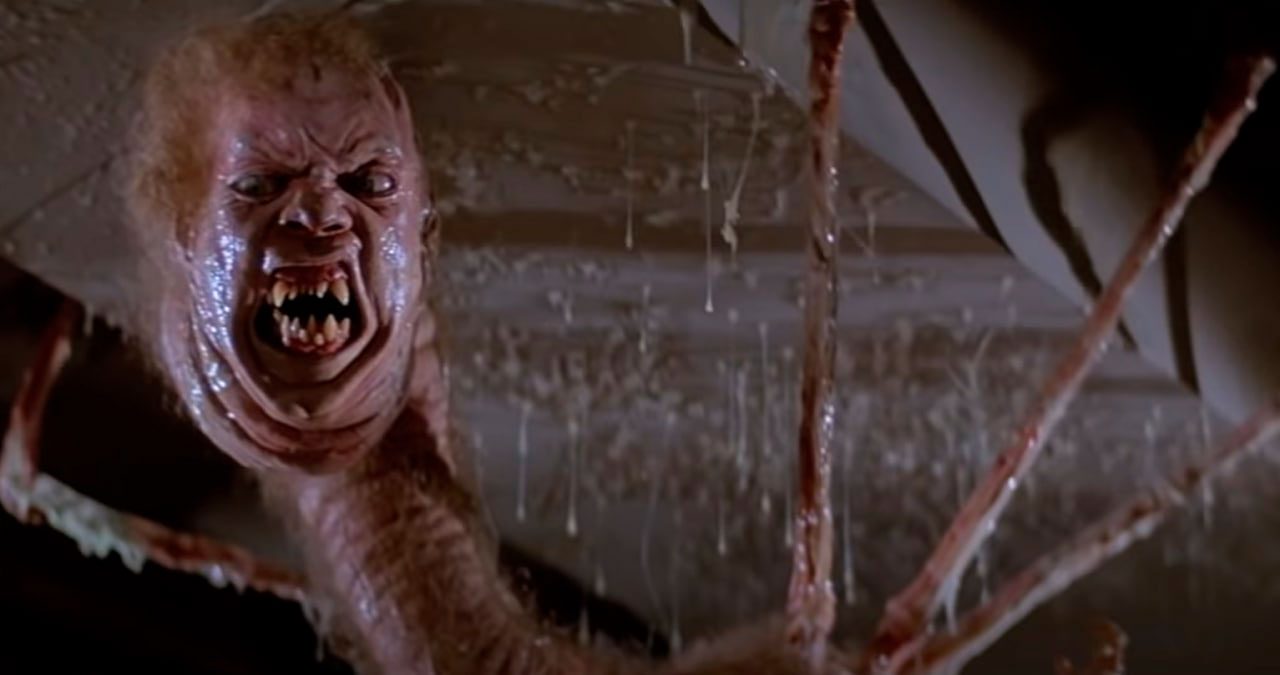Racism and Eurasianism or Christian fascism together with communism, Oleksandr Dugin or Ivan Ilyin, Yuriy Kovalchuk or Putin himself. Historians and journalists use different terms and names to find out who is the ideologist of the war in Ukraine and which political current played the leading role in the events of February 24. At the same time, the question arises — is there even an ideologue who can influence Putin when the entire state and media apparatuses have lost their subjectivity in a country ruled by one person? The graduating editor of Zaborona, Daniel Lehovitser, tried to understand the history of Russian fascism and its new currents.
Flowers for a Fascist
In 2005, a particularly important cargo left the Zurich suburb of Zollikon for Russia, delivering it to the Don Monastery with the presidential motorcade. The monastery, located near the former dormitory of the NKVD, a retraining center where KGB officers become priests and priests become a part of KGB, is known not only as a place of remembrance, where thousands of bodies were burned during the Great Terror of the 1930s. Ivan Ilyin, the primary source of wisdom and quotes of the Russian president in conversations with journalists and Kremlin apparatchiks, was buried here in 2005, transported from a Swiss cemetery on the personal orders of Vladimir Putin.
-

Russian Patriarch Alexy II mourns Ivan Ilyin and Anton Denikin with their wives during their reburial ceremony on the territory of the Don Monastery. Moscow, October 3, 2005. Photo: Tyana Makeyeva / Getty Images
The visit by the President of the Russian Federation to Ilyin’s new grave in 2009 was marked by Putin’s — and therefore state’s — recognition. That day, Putin laid flowers at the grave of a man who would later be called the founder of Russian Christian fascism. In the same period, by presidential order, the Ilyin library will be delivered from the archives of the University of Massachusetts. The political class will understand that it is necessary to teach philosophy: after Putin, Medvedev, and Lavrov, pseudo-opposition LDPR and CPRF, governors, and all those who wanted to merge into the Kremlin will talk about Ilyin mainstream. It is necessary for a politician because, in one conversation, Putin will say that Ilyin has become his “favorite historian” and, therefore, should become theirs as well. However, the President of the Russian Federation will never be told that Ilyin did not write any historical work. He was a philosopher and publicist.
-

Ivan Ilyin. Photo: Wikimedia
The Innocent Collective Body of Russia
The words Ukrainians and Ukraine in quotation marks, the super-historical exceptionalism of everything Russian, the transatlantic enemy that corrupts the innocence of a simple-minded Russian person, the defense mission of a nation that wishes no harm to anyone. These are not the content of the Russia Today channel employees’ manual, the social media hashtags of propagandist Volodymyr Solovyov, but Ilyin’s theses, which recall the 1930s and 2020s.
Ilyin supports the white monarchist movement, a counter-revolutionary who saw the USSR as a degenerate system that turned Russians into inexperienced “Tarzans.” In 1922, along with other unwanted intellectuals, he was sent to Europe on the famous philosophical ship by the order of Lenin. It was impossible to shoot Ilyin — Lenin claimed he had written the best book on Hegel’s philosophy. However, Ilyin took an even sharper turn to the right in Europe: he was captivated by the ideas of Italian fascists and Nazis. However, it was pretty natural for an intellectual disappointed in the political projects of the past. Ilyin saw the future for the new, post-communist Russia in cleansing fascism, whose leader must abolish the institutions of power and become this institution himself.
-

Philosophical ship. Photo: Wikimedia
In his journalistic works, Ilyin wrote about Russia’s divine, theological purpose, which, unlike the West, managed to preserve the purity of spirit — this became something like a genetic feature of the Russian person. Russia, according to Ilyin, should be a national vacuum state, a Christian ascetic, walled off from the heavy influence of the West. However, all the country’s attempts to preserve purity turned into attacks on its sovereignty — they say all wars in the history of Russia were defensive. Evil can be defined through the lens of Russia; everything that goes against it is evil. And if, over the past 300 years, Russia has attacked Poland 13 times, it means that historical evil is on the side of someone who has no Russianness.
Russia-2022 and Ilyin’s Christian-Fascist tradition correlate with each other. Many of the philosopher’s formulations accurately describe the political monologue that Putin imposed on society and the state-corporate apparatus. Russia’s self-defense mission, which Ilyin wrote about, resulted in wars against Moldova, Georgia, and Ukraine. The nation-state vacuum was indeed formed, thanks to the sanctions blockade of the rogue country. The nation-state has become an agitation about “one nation” and the “Russianness” of Belarusians and Ukrainians within the framework of which everything neighboring should appear Russian. “The principle of democracy [as] an irresponsible human atom,” about which he wrote, has become a political reality: Russia has been ruled by what the philosopher called a “democratic dictator” for twenty years.
According to various assumptions, Nikita Mikhalkov, or Nataliya Timakova, a graduate of the Faculty of Philosophy and press secretary of the then head of the government of the Russian Federation (as sociologist Konstantin Haase suggests) introduced to Putin Ilyin’s books. To rehabilitate in the 21st century, Ilyin’s ideas, their carriers, need time. It came in the 2010s, resembling a spiritualist séance: Ilyin’s spirit was felt in the Russian political climate. In 2012, Putin spoke extremely harshly about the West, explaining the protests in Bolotnaya by the actions of Hillary Clinton, who allegedly financed the rallies. The USA and Europe have become a “nursery of non-traditional values” opposing Russian “innocence.” Finally, Ukraine, peering into Europe, threatened secession from all of Russia. Since the 2010s, Ilyin’s ghost has roamed Russia and spoken in the voice of fascists and Kremlin henchmen.
“A Special Eurasian Path”
“Putin’s brain” and “the mastermind behind the Ukrainian-Russian War” are typical phrases in foreign media headlines about the behind-the-scenes role of the neo-fascist and mystic philosopher Oleksandr Dugin in planning the war against Ukraine. Pro-Russian lobbyists and incompetent Sovietologists often write about Dugin as an occult mentor of the President of the Russian Federation, who allegedly inspired Putin with the idea of building a continent within a continent — Eurasia, an anti-Europe, on the way to which a free Ukraine stands.
-

Oleksandr Dugin. Photo: Wikimedia
There are no convincing facts about Dugin’s closeness to Putin; in the last six months, the mass media often write that starting in 2020, Putin listens only to businessman Yuriy Kovalchuk, who, as the press claims, also shares fascist views. Dugin’s appearance in the Kremlin is hard to imagine if only because he belonged to the extremist National Bolshevik Party (NBP) together with Eduard Limonov (the latter called Dugin “Cyril and Methodius of fascism”). Lubyanka, with its FSS members and the General Staff of the Russian Federation, was a more hospitable environment for the philosopher, which experienced a crisis of ideas at the end of Boris Yeltsin’s rule. For his activities in the NBP, Dugin was waiting for an arrest. Instead, he was invited by Yeltsin’s entourage to the propaganda and media environment, but he never got involved in big politics.
-

Eduard Limonov at a meeting at the headquarters of the National Bolshevik Party. Moscow, July 20, 1999. Photo: CHERYL DIAZ MEYER/Star Tribune via Getty Images
The list of influencers of Dugin’s philosophy is eclectic and inconsistent: mystic Aleister Crowley, Nazi sympathizer Martin Heidegger, and philosopher Lev Gumilyov, who first proposed the concept of Eurasianism. According to her, civilizations owe their origin to the mystical light that descended on Earth. According to Gumilyov, the light of Western civilization appeared in ancient times, making the West decadent; on the other hand, Russia is a young and energetic nation formed not so long ago.
It is known that during his travels in Europe, Dugin expanded his network of contacts among the far-right marginals. Historian Timothy Snyder writes that the Russian philosopher was significantly influenced by the Chilean Miguel Serrano, who founded esoteric Hitlerism — a whole cosmological system according to which extraterrestrial forces chose the leader of the Third Reich. Serrano convinced Dugin of the messianic role of the leader, which Putin’s favorite philosopher Ivan Ilyin also believed in. By the way, Dugin considered the latter not very interesting to study.
Even more noticeable is the intellectual footprint of the Romanian occultist Jean Parvulescu, who wrote a book about Eurasianism and Putin. Parvulesco told Dugin that civilizations are divided into Atlantists (people of the sea) and Eurasians (people of the land) — this category will become a program component of Dugin’s philosophy in the 2010s. According to the Romanian, the people of the land retained a secret knowledge not apparent to the people of the sea. Through the globalist shipping connection, the Atlanteans lost their identity and dissolved into each other, while the isolationist people of the land managed to maintain an inner benevolent purity. Dugin interpreted Eurasianism as a compensatory tool: if Russia does not want to get closer to the West, it should get closer to the East; if Russia does not want to become Europe, Europe will become Russia. The field of this battle will be Ukraine.
-

Jean Parvulesco. Photo: Marc Gantier / Gamma-Rapho via Getty Images
It would be an exaggeration to say that Dugin influenced the decision-making center — he never became a representative of the political class. In 2005, Dugin founded the International Eurasian Movement and the Eurasian Youth Union — some branches included only a few people. In general, both movements did not have a significant political asset. In the future, he will work with Konstantin Malofeyev, the owner of the nationalist and propaganda media “Tsargrad” and “Katekhon” as a link with European ultra-nationalists and pro-Russian lobbyists. The ideas of Eurasianism, which were marginal until the mid-2010s, became mainstream not only due to the merits of the Duginites but to geopolitical processes — the polarization of the views of the United States and Russia and artificially heated Americanophobia and anti-liberalism. Soon, the fascist wing of Russia will talk about the ideas of Eurasianism (or those close to them), and Dugin will turn from a pariah into a beneficiary of great ideas. It is precisely the picture that the media will create, mythologizing the philosopher’s role and portraying him as someone like the Rasputin of our century.
-

Oleksandr Dugin at the New Horizon international conference in Iran. Mashhad, Iran, May 2018. Photo: Tasnim News Agency / Wikimedia
Fascism as a Career Ladder
Eurasianism will also allow other nationalists to rise from the lowest floors of the media environment — for example, the writer Oleksandr Prokhanov, who turned from an outsider into one of the most visible speakers of the fascist wing. In 2012, Prokhanov created a platform for Eurasianism — the “Izborsky Club,” which included Dugin, Metropolitan Tikhon (Shevkunov), and former advisor to the President of the Russian Federation Serhiy Glazyev. The “Manifesto of the Founding Fathers” of the club talks about liberal globalism, which tries to shake the foundations of religious and national harmony between Russia and its neighbors, and Prokhanov himself popularizes a mixture of fascism, Bolshevization, and Asian-type economics. In the same 2012, he insisted on the “Russianness” of Ukrainians and Belarusians and spoke about the importance of Ukraine as a strategic springboard for the start of the Eurasian project.
-

Prokhanov with Oleksiy Mozgov, the leader of the so-called “Luhansk People’s Militia”, August 7, 2014. Photo: Wikimedia
Prokhanov did not simply insist on the union state of Ukraine and Belarus, which would become satellites of Russia, which took a course to the East. His plans were related to the expansion of the continent and corresponded to the already main idea for Eurasians that Russia should not reach out to the world but that Russia should become this world. Prokhanov saw the role of Eurasianism in supporting far-right movements in Europe and the USA. It happened: pumping up the finances of Marine Le Pen’s “National Front,” the Russian trail in the 2016 US presidential election, and flirting with the Trumpists. His quote best conveys Prokhanov’s idea that Europe can become a “constellation of fascist states.”
Dugin, Prokhanov, Malofeev, or anyone else, no media figure in Russia seems like an ideologue who would play a significant role in a country where all political institutions and social mechanisms have turned into one man with unlimited power. The monopoly on violence and ideologues belongs to Putin, who has completely destroyed the subjectivity of other players. If there are other ideologies in Russia, they are allowed to speak either to appear too left or right (and thereby advantageously highlight the illusory, more restrained centrist position of the government) or to sing along to the Kremlin. Using a mixture of bandit slang and diplomatic language, which is increasingly coming from the mouths of Russian officials, no ideologue in Russia “does not solve anything.” Eurasianism, or the “Russian world,” valued isolationism but saw its mission in the expansion and overcoming of space. Eurasianism has become like the Thing, the monster from John Carpenter’s horror film of the same name. It devours everything in its path, infecting everything it touches with its non-native, alien DNA. Dugin, like Ilyin and Gumilyov before him, saw the extraterrestrial role of Russia, which traces its origins to distant stars. In some twisted sense, it is.
-

A frame from the movie The Thing”. Photo: Wikimedia

